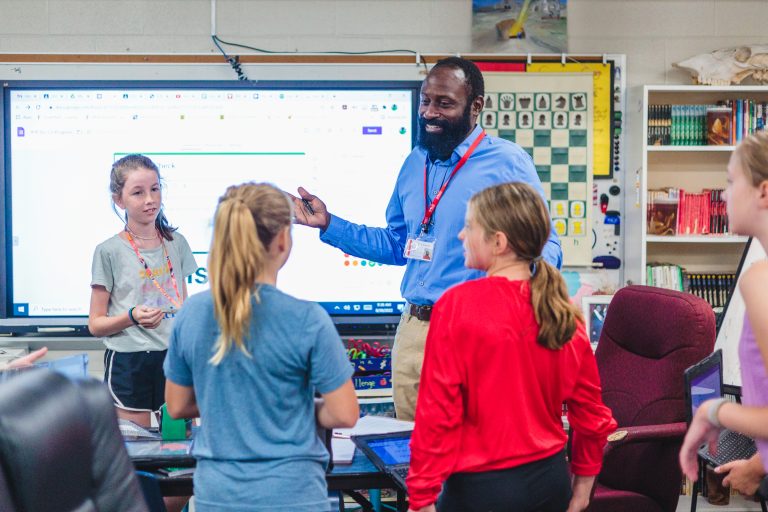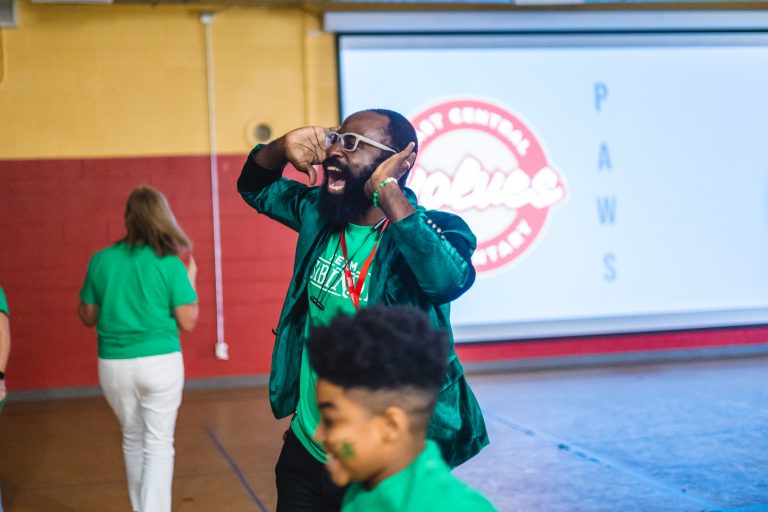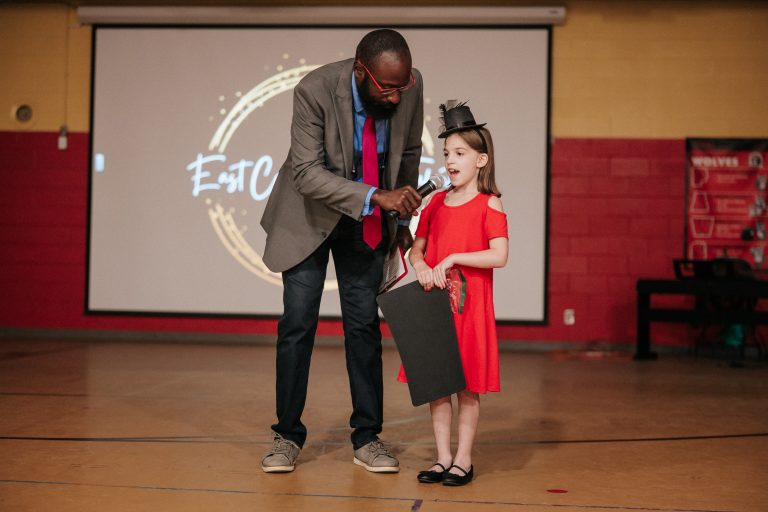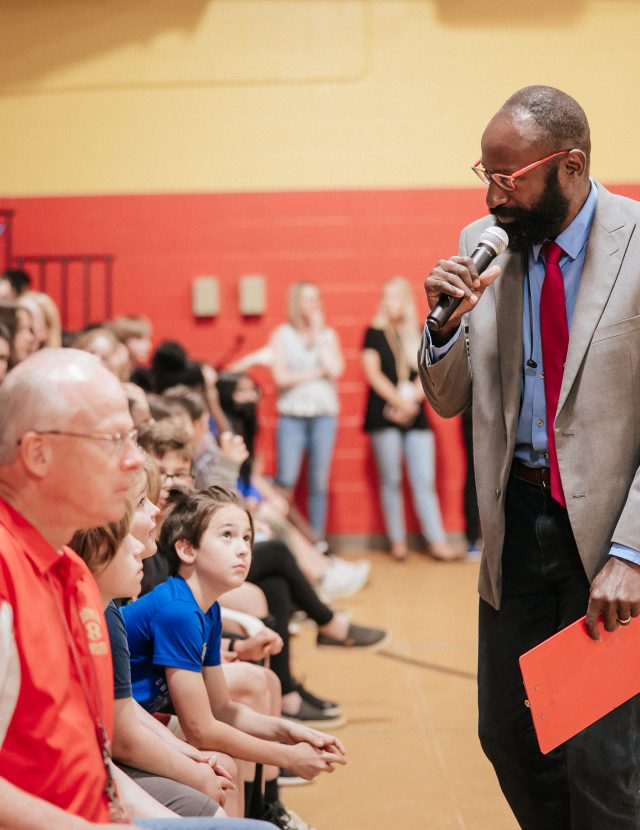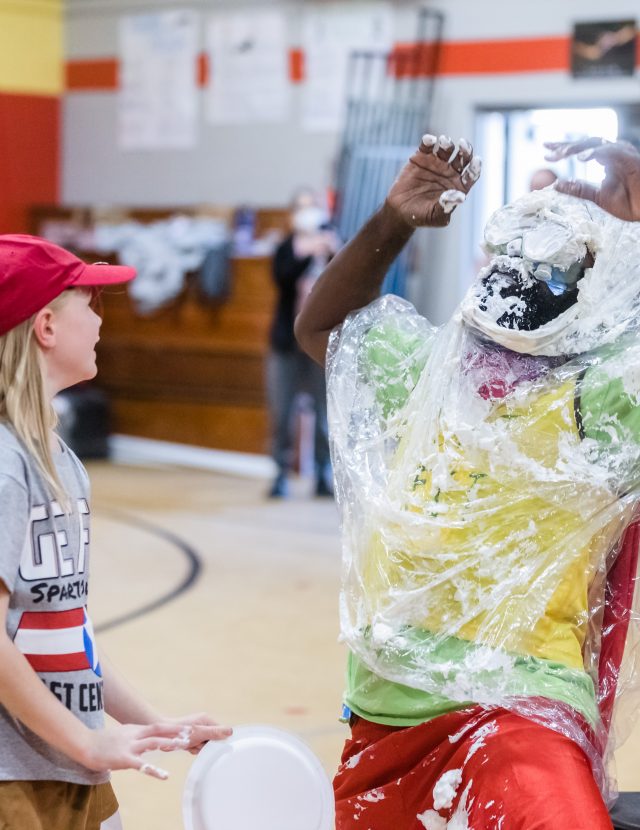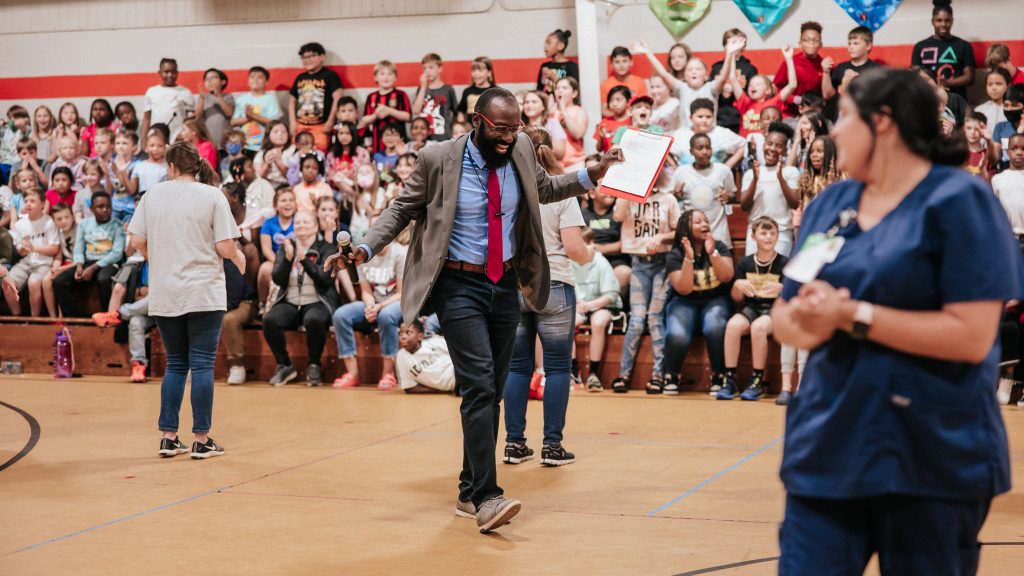
Photos provided by Rome City Schools
Some kids wind up at the right school at the right time with the right teacher. These students are not only exceptionally bright, but they are also fortunate. They come to school knowing they will constantly be challenged, and that they will have fun while meeting those challenges. As they move up through their elementary school grades, they will encounter an array of learning experiences that will prepare them for life-long learning, personal growth, and success. In the earlier grades, they will learn to play chess and design and build cricket habitats, learning to see themselves as thinkers, problem-solvers, scientists.
Later they will learn about the stock market, studying all about finance, process, planning, and investing. They will learn how to plan, organize, and put on a school dance. By the sixth grade they will design, write, edit, and publish their own magazine. Add to that a host of other fascinating, mind-expanding experiences and these children will be ready to face life—and the upper grades—with confidence. None of this happens by accident. It’s all carefully and thoughtfully crafted and executed. The man behind all of this is Gary Jones, the award-winning teacher of the gifted students at East Central Elementary in Rome, Georgia. His students and coworkers will tell you he’s one of a kind.
Gaining an international perspective
“I grew up in Germany,” Jones says, “because my dad is a soldier. He wanted to get us out of West Philadelphia, where my mom and dad grew up. I was probably about four when we left Philly. We were in Germany, on-and-off, for about eleven years. We left around the time the Berlin Wall came down.”
In some ways, Jones’ experience as an expat and an international student in Germany laid the foundation for his later role as a teacher for gifted students. “The discipline in Germany was a lot stricter than here,” Jones says. “In the military system, if you got in trouble, your father got in trouble too, so your behavior was moderated by that. If you caused a problem the consequences would affect your family.
That is a huge difference between a military life and being a civilian.” Growing up, Jones and his younger brother were taught they were not only representatives of their family, but of their country as well. Jones adds, “That’s something I try to instill in my own family and in my students. Growing up, we were pretty poor, monetarily, but I think I have a priceless education and life experience. It was a true global education.”
As a teenager leaving that high-discipline world, Jones found moving back to the States a challenge. “Coming back to America,” Jones says, “the culture shock was scary. I was told things like: ‘You’re not going to understand anyone’ and ‘They all drive pickup trucks and play banjos.’” With a laugh, Jones adds, “When I got here, though, I fell in love with the South.”
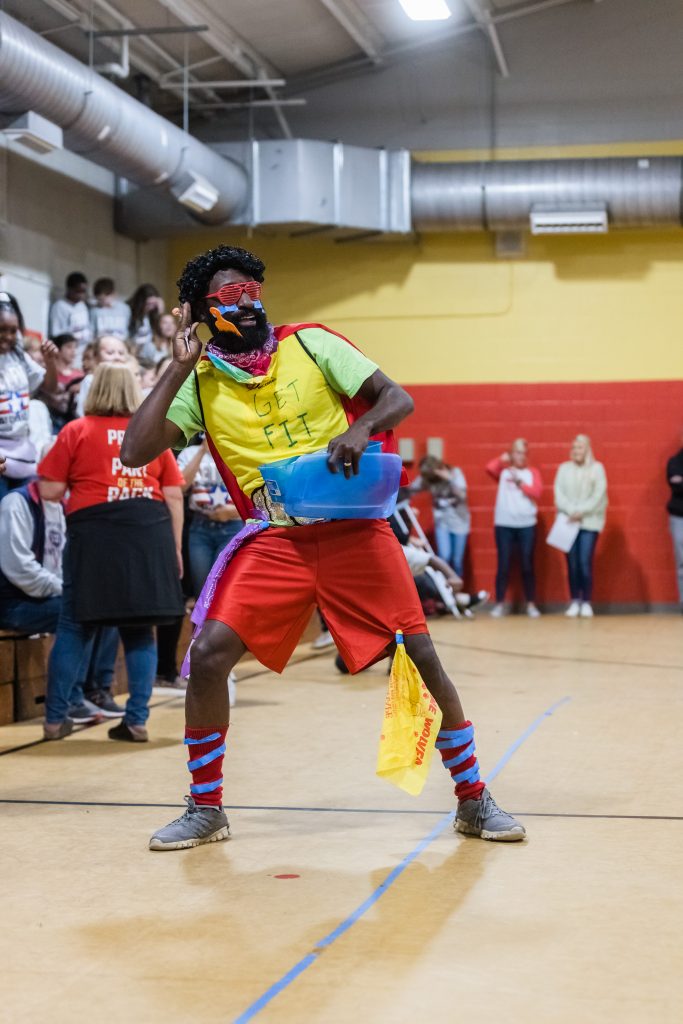
The making of an educator
Gary Jones’ original career goal had nothing to do with teaching children; he wanted to become an attorney. Over the years, various teachers had pointed out to Jones that he had a unique skill set, that is, he could articulate his point of view persuasively as well as argue a subject from different viewpoints.
However, when Jones explained to his guidance counselor at Avondale High School (Decatur, Georgia) that for those reasons he wanted to become a lawyer, the counselor said, “Also, with your skill set—and you’re good with people—you could easily become a janitor.” That temporarily discouraged Jones from making plans for college, but thankfully for Jones’ future students, he did not ultimately take that guidance counselor’s advice and pursue a custodial career.
After taking the ASVAB (Armed Services Vocational Aptitude Battery), it was clear that Jones had potential to become an Army officer. Suddenly, a career in the military was a viable option. After all, it was a family tradition, a noble profession. The idea was short-lived, as a severe case of flat feet made joining the Army impossible. “I was devastated,” Jones says. “I became totally depressed.”
Soon after that, a substitute teacher in Jones’ high school German class suggested he consider Berry College, in Rome, Georgia. Visiting the campus, he was immediately enchanted. The beautiful Gothic-style buildings reminded him of the architecture he had grown up admiring in Europe. He says, “It was like the moment I [later] met my wife—love at first sight.” He applied to Berry College, was accepted, and enrolled as a pre-law student.
Jones’ first encounter with children in an educational setting happened almost incidentally. He took a class in dance, and the instructor asked him to come help her in her class at Berry Elementary. “That was my first experience working with kids. They were probably five and six years old. Just babies.”
Teaching those small children about dance was, to Jones, a joyous time. And an epiphany of sorts. Right away, he began rethinking his career path. “Until then, I had wanted to be an attorney—to make money, prove myself—but I knew that was not where my happiness was.” Watching those children dance, he thought, “I could do a lot of good in education.” Soon afterward, he changed his major to Early Childhood Education.
Some need a little more
At the close of his senior year at Berry College, Jones attended a job fair, where he received six or seven job offers on the spot. He was intrigued by an offer from Berry Elementary. They told him they saw a lot of potential in him and that they would help him grow, and if he came on staff, he could teach whatever he wanted to.
“I was taken aback by that,” Jones says, “but I accepted the job, and it was the best decision I’ve ever made. Those six years at Berry Elementary were great. While there, I created an integrated curriculum. I took whatever the students were learning in their classes and incorporated it into physical education, art, drama. That played to my skill set—creative thinking, thinking on my feet.”
In 2004, Jones made the move to East Central Elementary, also in Rome. There, in 2009, he began teaching gifted students, which has become a deep, abiding passion for him. He says, “A gifted student is the one who needs a little bit more; they’re the top five percent of students. We test them into the program—they have to excel in three out of four areas: achievement, cognition, creativity, and motivation.”
For him, the shift was a significant one. “It was a scary transition for me,” Jones says. “I didn’t really know what I was getting myself into.” Quickly, however, he discovered he had a lot in common with his new students. “I understood them, because when I was a kid, I was a gifted student, as was my brother. Back then, though, the programs were not as defined, especially like we grew up—constantly moving—it was never consistent.”
Jones teaches 2nd through 6th grades. Of his students, he says, “These kids are quirky, creative, unique, and high achieving. They have asynchronous abilities. That is, they may be high in math but off on reading, or vice versa.” Jones explains that many of his students tend to hyper-focus on their own interests, and it’s a challenge to engage them in subjects outside of those things.
“To make them learn other things I have to make it fun and challenging. They need to build a foundation that will hold up later. For instance, a lot of my students are great in math and the sciences, so I mix that with writing and debating and art. It’s an interdisciplinary approach.”
A program for everyone
Jones explains that there used to be a stigma that the gifted program was only for white students. He says, “You don’t see many Black men in elementary education. Even when I go to gifted conferences, I’m the only Black male there.”
As Jones sees it, his present position in the school system is a positive motivational factor for people of color. “I’m the first Black male teacher to be a gifted teacher in the Rome City Schools,” he says, “and because of that, I’ve had so many conversations with parents and children that would have never happened before. I’ve actually had parents tell me they didn’t want their child in the gifted classes because they didn’t think their child would be comfortable being without their friends—and no one in the program looks like them.”
For Black students, it’s important for them to not only see a teacher who looks like them but to also know that this teacher is successful in his vocation. Gary Jones has received many awards and accolades from the educational system and from the wider community.
These, among others, include: East Central Teacher of the Year, Rome City Schools Teacher of the Year, Northwest Georgia Coosa River Basin Initiative Teacher of the Year, Northwest Georgia Walmart Teacher of the Year, and Georgia Economics Teacher of the Year. The list goes on and will doubtless grow in years to come.
It’s too fun to stop
For gifted students, engagement is the key to success. Jones says, “If you make your classroom something kids look forward to, they’re going to give you a hundred percent because they see you’re giving them a hundred percent.” This sort of mutual commitment and enthusiasm can make Jones’ students give up things they usually enjoy in order to stay on task. For instance, one day Jones’ class was reading and discussing the post-apocalyptic novel The City of Ember (by Jeanne DuPrau), which is about a civilization that lives in a subterranean city.
The students became so engrossed in a spirited debate about what it would take for people to survive in such a harsh, isolated environment, that when Jones looked at the clock and said, “Okay, guys, it’s time to go out for recess,” they balked. The kids didn’t want to go outside; they wanted to continue their discussion about DuPrau’s book. Jones says, “That doesn’t happen often—we love going outside—but that’s the magic of the classroom.”
Like his students, Jones sometimes loses himself in the process too. “Today I kept thinking it was Monday, but it wasn’t,” he says. “I lose track of the days because I’m having so much fun. I get excited. I wish I could bottle that. That’s the beauty of teaching.”



